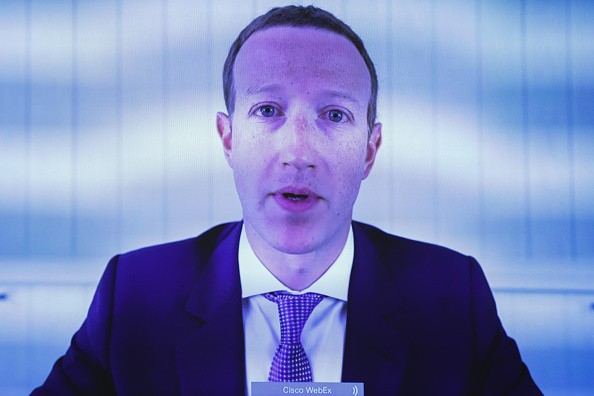Facebook Tweaks Algorithm to Promote Certain Sites Amid Surge in Election Misinformation

Facebook changed its algorithm after Election Day to highlight certain news sites as it tried to combat election misinformation.
According to a New York Times report on Tuesday, Facebook decided to favor news sources like CNN and NPR. On the other hand, sites that were considered by Facebook as "hyperpartisan pages" were suppressed, including Breitbart and Occupy Democrats.
With the demotion, these kinds of pages will not be as visible as they used to be in users' Facebook News Feeds.
Breitbart said in a report that the pre-text behind it was the spread of election misinformation days after the election, but the changes were said to have not been based on post-election content published.
The news outlet said the move was "tantamount to what in a legal First Amendment context would be considered an illegal prior restraint of speech."
Breitbart has already reached out to Facebook for comment and to try to clear up the matter.
Only Temporary Changes in Facebook
As The Wrap said, this change in the social media conglomerate is "temporary" in nature, just as the company tries to deal with inaccurate election information. But they did not say how long the algorithm will be working as such.
The Times said some of Facebook's employees want the suppression of Breitbart and other "hyperpartisan" sites to become permanent. But the effect it may have on people's perception of the site and user participation is still unknown.
Reportedly, the site's employees want to see a "nicer news feed" that is somehow suppressing other news sites and boosting the likes of CNN.
Guy Rosen, one of the company's executives, said that changes in the site were always meant to be temporary. This reasoning may be because the online world is also ever-changing.
"There has never been a plan to make these permanent," he said.
John Hegeman, who is in charge of the News Feed, added that Facebook would likely roll back the algorithm. But the company would still have to study and learn from these changes.
This struggle illustrates the main problems surrounding Facebook's fight against misinformation.
On one end, the company aspires to improve the information that its users consume on an almost daily basis. But it is also at odds with its desire to be a strong figure in the industry.
Workers Suggested Facebook Algorithm Changes
Facebook CEO Mark Zuckerberg's decision came after his employees noted a surge in election misinformation appearing on the platform days after the election.
In response, they proposed an emergency change to the News Feed algorithms, which helps determine what each person sees every day.
The process involved the importance of "news ecosystem quality" scores (NEQ), which is the company's secret internal ranking of news publishers based on signals about their journalism quality.
It was said that "more authoritative" news appeared more prominently in people's news feeds as Zuckerberg agreed to increase this factor's weight in the algorithm.
When The Wrap tried to reach out to Facebook for comment, the social media giant did not give an immediate response.
Subscribe to Latin Post!
Sign up for our free newsletter for the Latest coverage!
© 2026 Latin Post. All rights reserved. Do not reproduce without permission.















